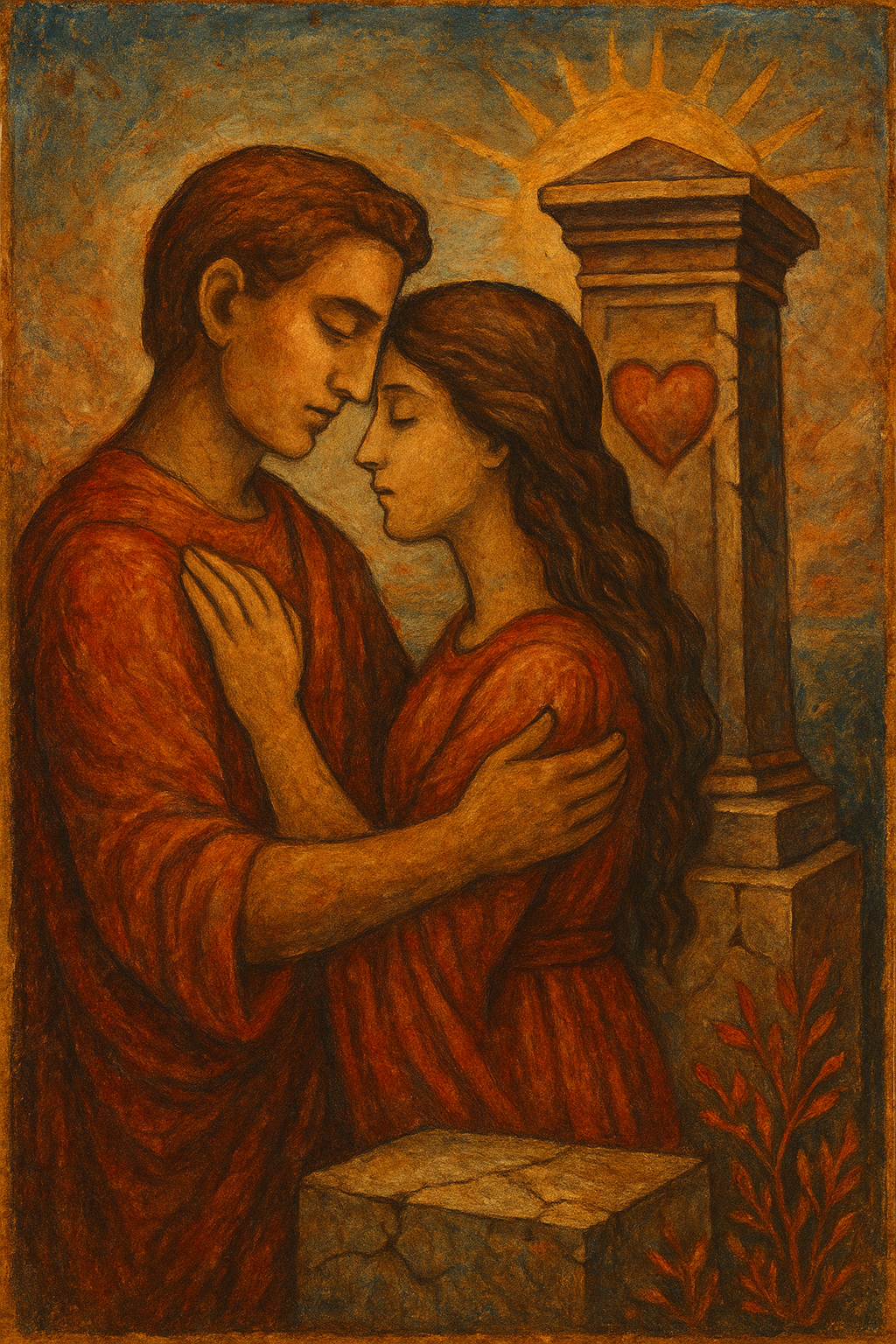Aere Perennius
A Love More Lasting Than Bronze (Rome)
Standard Definition:
A love that endures beyond time, unyielding and eternal, more lasting than even the strongest monuments.
Poetic Meaning:
A love that neither rusts nor crumbles, a name that time cannot erase, a whisper that lingers in eternity’s breath.
Storytelling Etymology:
The Latin phrase Aere perennius originates from the poet Horace (Carmina 3.30), meaning "more lasting than bronze." It was used to describe works of art or poetry that would outlive the physical world. Here, it is transformed into an expression of love—a love so enduring that even the slow erosion of centuries cannot wear it away.
Cultural Context & Symbolism:
Ancient Rome prized immortality, whether in stone or in verse. But love, too, can be aere perennius—a love that does not fade with time, that surpasses the fleeting nature of the body, the crumbling of empires, and even the passing of memory. This is the love that is spoken of in myth, the love that lingers in letters, the love that outlives its lovers.
Poem:
Not wind, nor rain, nor stone can break,
A vow that time itself must take.
When marble falls and echoes cease,
Still, love remains—a quiet peace.
Reflection:
What truly lasts in this world? Bronze will erode, ink will fade, even the tallest towers will fall. But love—love endures. It weaves itself into stories, into the fabric of the universe, into the spaces between heartbeats. Aere perennius is not merely a phrase, it is a testament to the immortality of love itself.
